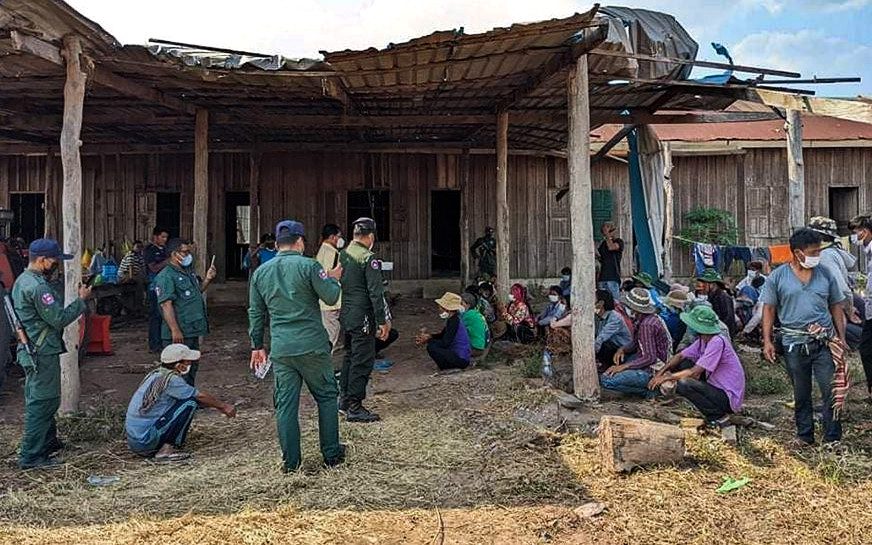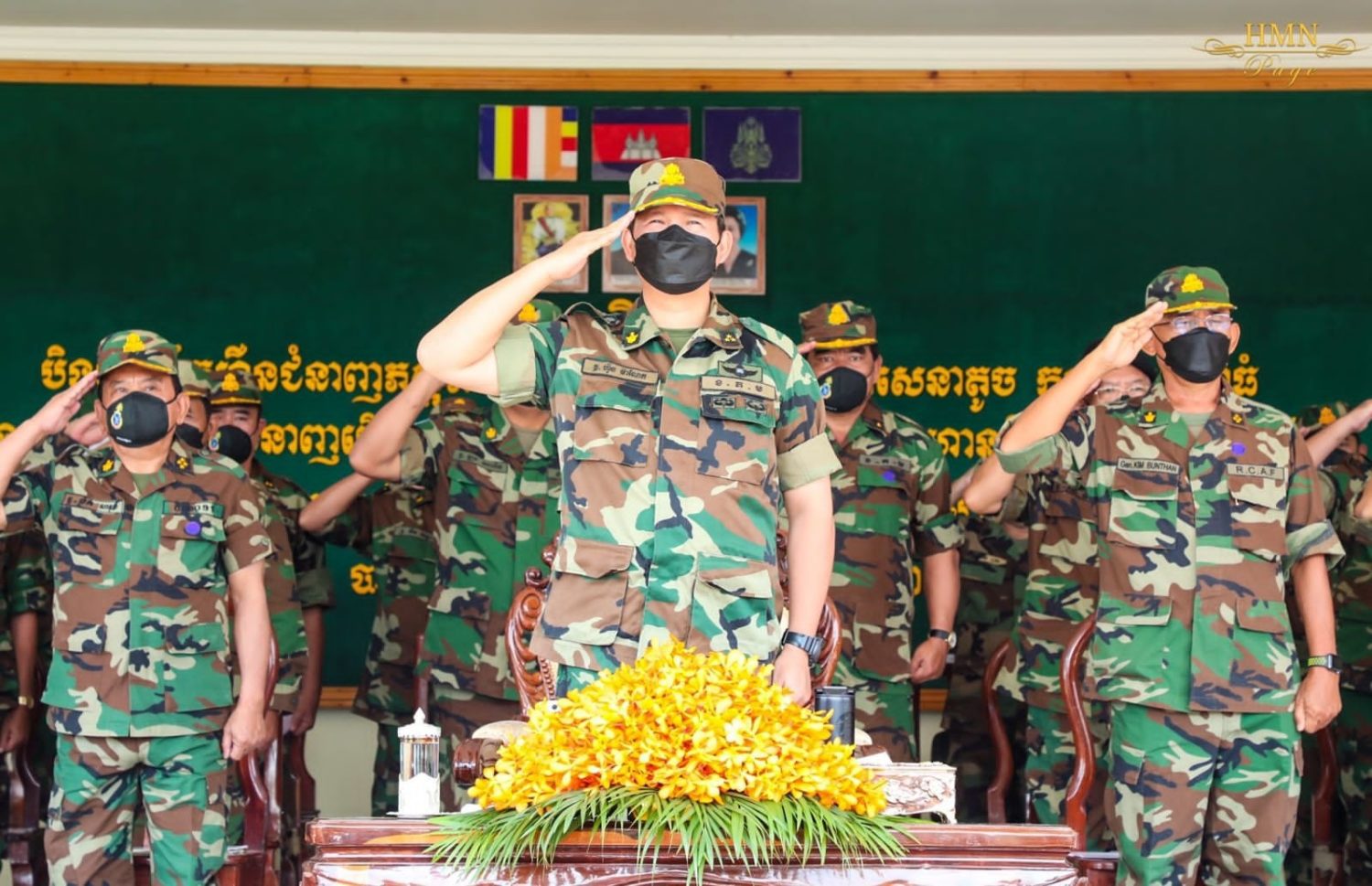Around 100 indigenous residents gathered outside the Preah Vihear Provincial Court on Wednesday as five community members were questioned by court prosecutors for alleged threats to kill and damage property.
The five village residents — Thon Sot, Son Savon, Ngorn Him, Thab Sokkey and Rourng Khan — were summoned to court for questioning on Wednesday after Ly Kimsreng, who they have a land dispute with, filed a complaint.
Residents of the Preah Vihear’s Tbeng Meanchey commune have faced persistent issues with their traditional farmlands, first from five Chinese sugarcane companies that were granted around 40,000 hectares of the land in four provinces, often referred to together as Rui Feng. More recently, residents said they had reclaimed their land only to be harassed by alleged representatives of the company and newcomers who were claiming land in the district.
Village residents alleged Kimsreng had been trying to clear their land earlier this year and they only attempted to stop the destruction of their crops.
Savon said all five attended the court hearing and denied all the accusations. He said Kimsreng was attempting to scare the village residents away.
“Where should we do farming?” he said. “We request the court to end these charges against us. This is an injustice for us.”
Savon said he wouldn’t stop fighting for their land even if local authorities got involved in the case.
Am Sam Ath, from rights group Licadho, said the case was another example of the rich and well-connected using the courts to harass people and undermine their rights.
VOD could not reach Kimsreng on Wednesday.













